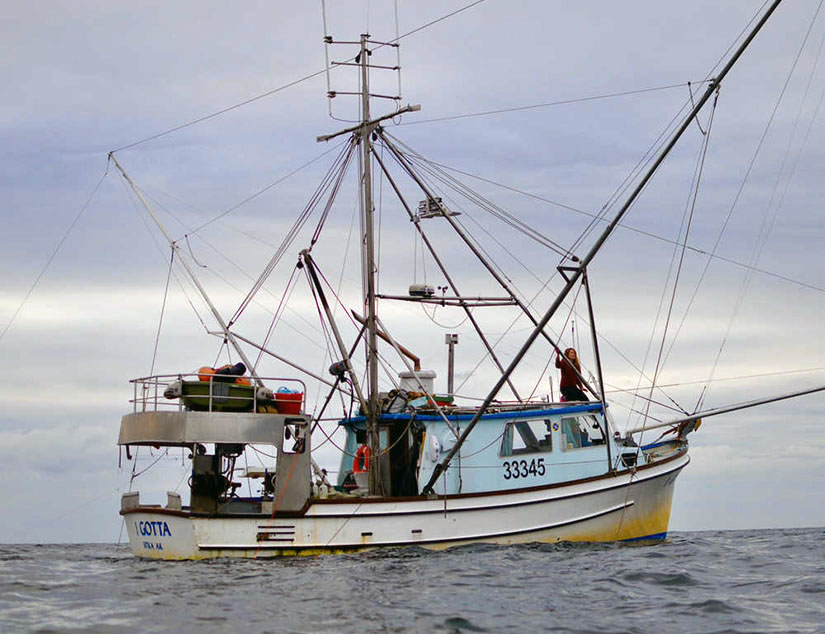
Harvesters with the Alaska Longline Fishermen’s Association (ALFA) are collaborating with the federal Energy Department’s Energy Transitions Initiative Partnership Project to test the future of energy-efficient low emissions fishing vessels powered by battery-electric motors.
Plans are, this fall, for a 46-foot commercial fishing boat, the I Gotta, to cruise into the waters of Sitka, cut its diesel engine and turn on a low-and zero-emissions propulsion system, becoming one of the first low-emissions fishing vessels ever deployed in Alaska.
Officials with the Energy Department’s National Renewable Energy Laboratory (NREL) in Golden, Colo. announced Aug. 22 that when using a unique parallel hybrid battery-diesel system, the boat can travel at full speed using its diesel engine, then switch to a battery-electric motor while fishing. It will allow the I Gotta’s captain, Eric Jordan to cut the vessel’s fuel use by 80%.
The project has, NREL notes, indeed taken a village — and several years of collaboration. The project got its start when ALFA applied for support with the Energy Department’s Energy Transitions Initiative Partnership Project (ETIPP) to assess options for fishing vessel hybridization. ETIPP then paired ALFA with commercial vehicle researchers at NREL and Sandia National Laboratories. Retrofitting of the I Gotta has been funded with grant support from AgWest Farm Credit and Acme Seafoods.
ALFA’s stated goal is to inspire decarbonization efforts across its fleet and beyond. The orgnization’s executive director, Linda Behnken, told NREL that ALFA, with more than 160 small-boat commercial harvesters, tends to be leaders in the climate and environmental space in Alaska. ALFA harvesters, who are committed to sustainable salmon fishing far into the future, are eager to reduce their greenhouse gas emissions and their fuel costs, Behnken said.
Still, she said, small boat harvesters can’t risk being early adopters of a new technology if it stands to jeopardize their fishing season, even when high fuel costs eat up as much as 30% of their earnings.
To reduce the risk, Behnken applied to join ETIPP, a network of regional organizations and DOE national laboratories that help remote and island communities to shift to renewable energy options.
Since ETIPP typically supports land-based communities, Behnken decided to see if ETIPP would support ALFA advancing energy efficiency in its fleet.
In 2021, ALFA was accepted into the program. ETIPP matched the fishing cooperative with NREL transportation researchers who specialize in technical assistance for commercial vehicle decarbonization.
The researchers considered potential solutions to allow small fishing boats to cut fuel dependency without sacrificing speed or range.
Commercial vehicle electrification researcher Michael Lammert, the project’s principal investigator, said researchers looked at running the boat off of next-generation fuels like hydrogen, as well as fully battery-electric scenarios and the charging infrastructure that would be needed. They chose a plug-in hybrid model for the I Gotta.
NREL and ALFA project partners selected the Transfluid hybrid propulsion system that allows the I Gotta to switch between a diesel engine for top speeds and a battery-electric motor to cruise through favored fishing spots. Electricity for the boat comes from hydroelectric dams in Sitka, a 100% renewable source that significantly reduces the boat’s greenhouse gas emissions.
NREL said the I Gotta’s hybrid system will be “smart,” meaning capable of optimizing use of the engine and motor, and the boat is being equipped with data loggers to measure actual fuel efficiency.
